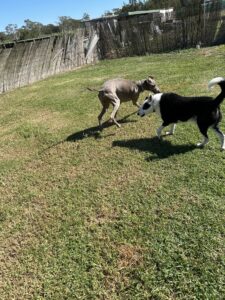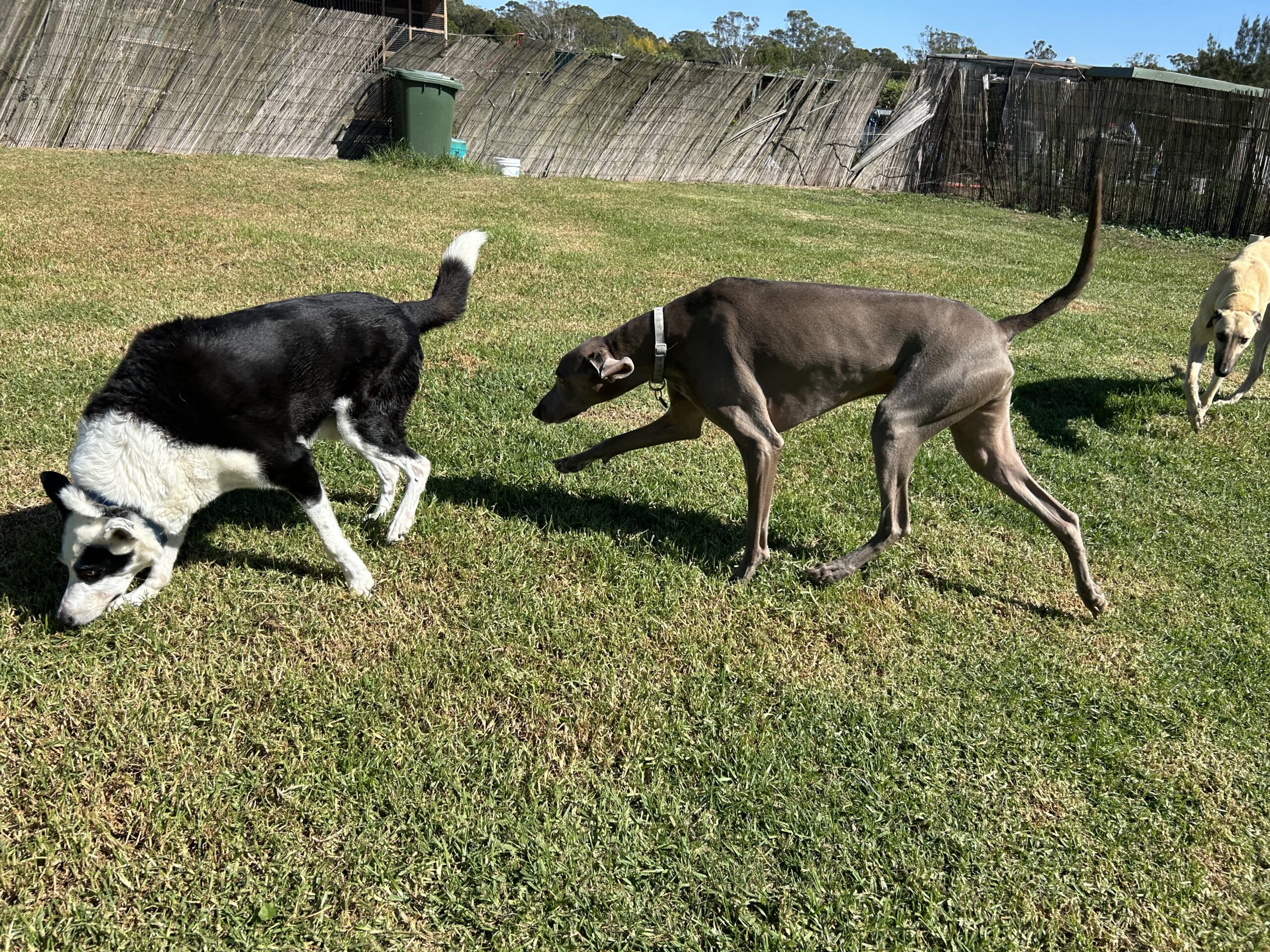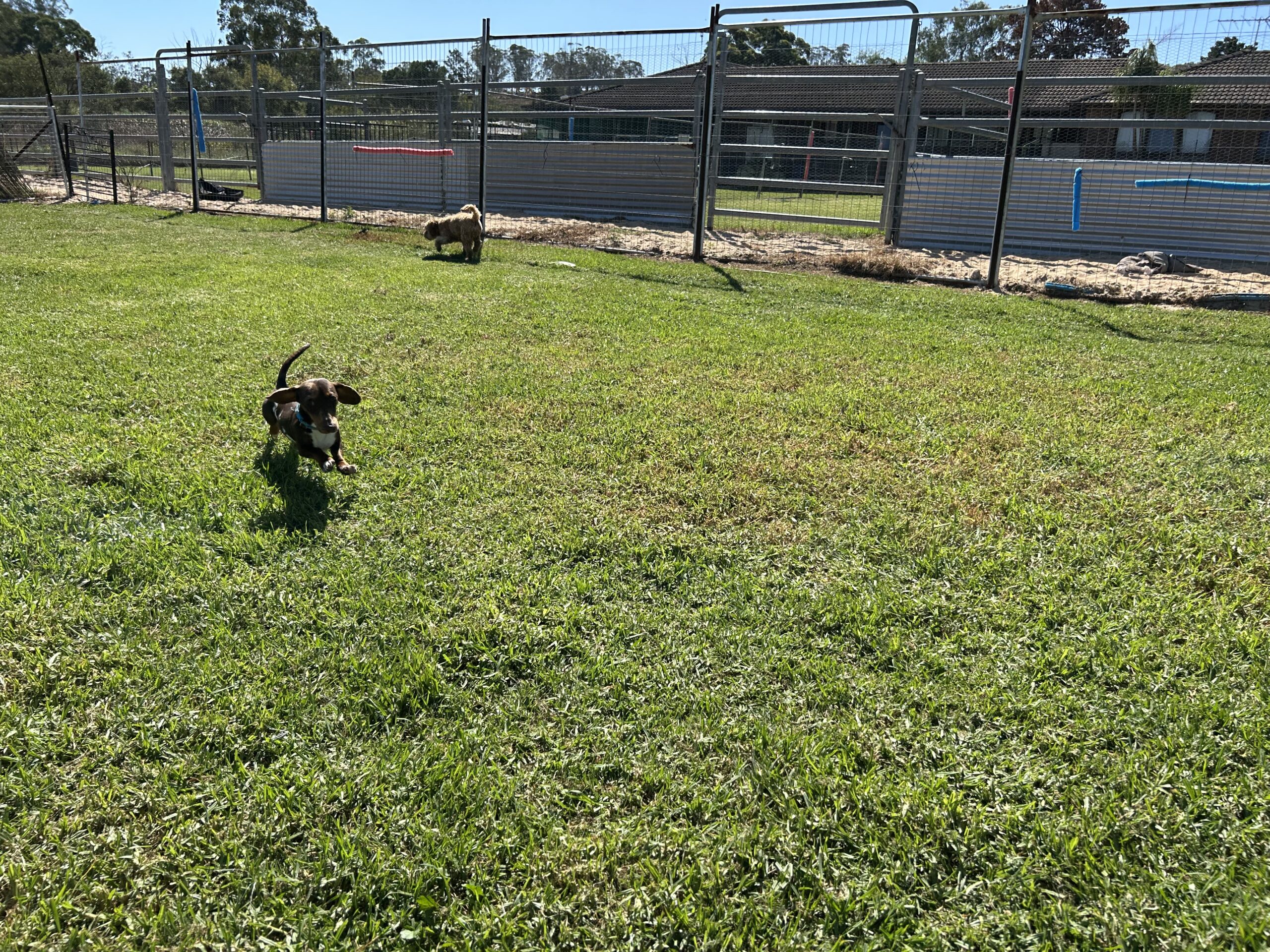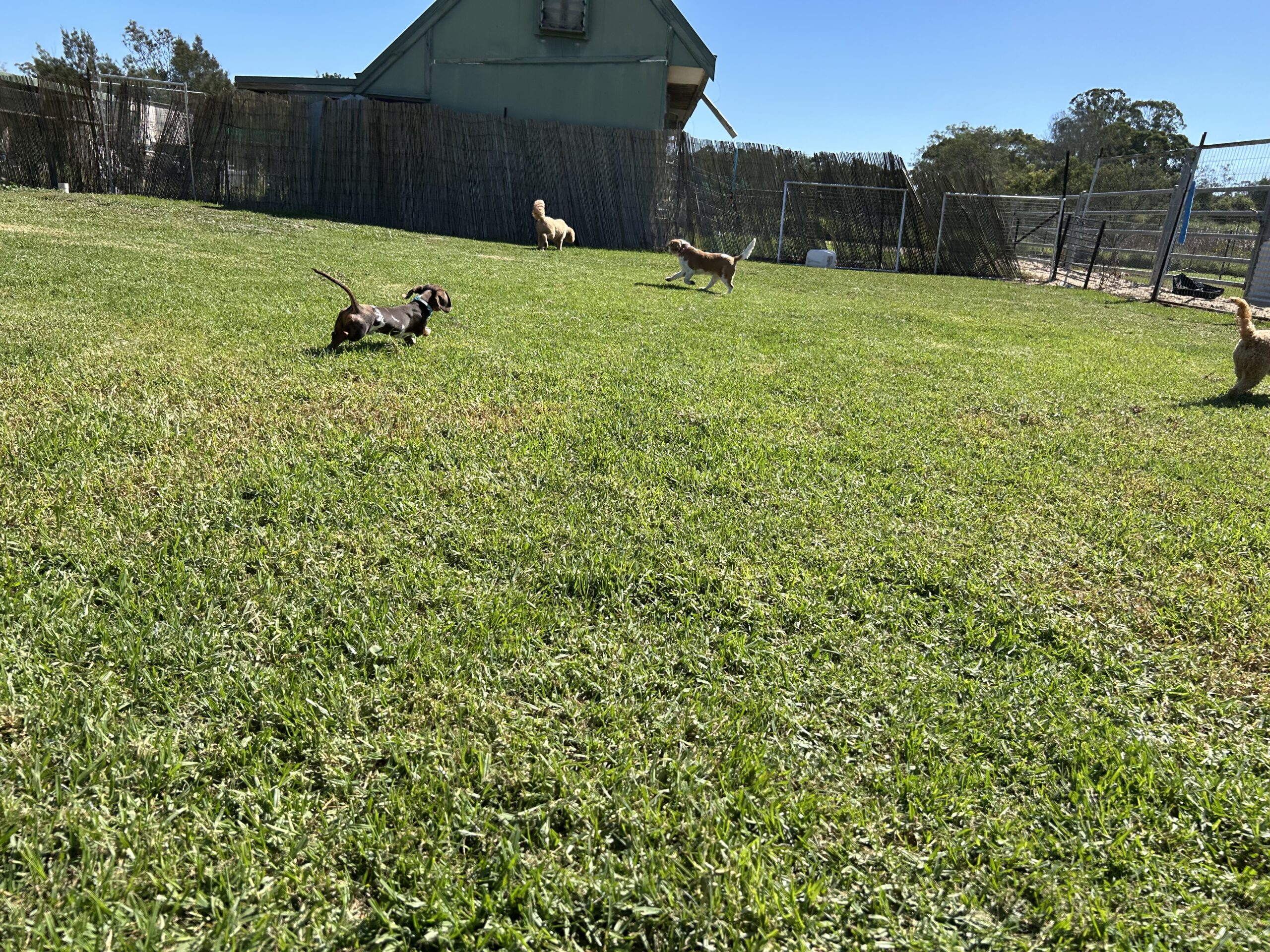Breed-Specific Socialisation: Joyful Customisation for Genetic Tendencies
Breed-specific socialisation recognises that different genetic heritage creates distinct social needs, requiring tailored daycare approaches that address inherent tendencies while developing balanced behaviour.
Key Takeaways: Customised Socialisation by Breed Type
Essential Breed-Specific Benefits
| Why It Matters | Benefit |
|---|---|
| Breed-specific socialisation addresses genetic predispositions | Different breeds have distinct inherent social tendencies |
| Daycare benefits by breed vary significantly between types | One-size-fits-all approaches fail to meet unique needs |
| Working breeds require different social exposure than companions | Historical function influences optimal socialisation |
| Targeted prevention addresses breed-specific challenges | Proactive approach prevents predictable issues |
| Strategic social exposure reinforces positive breed traits | Enhances beneficial tendencies while moderating challenges |
| Customised approaches respect individual genetic makeup | Prevents forcing breeds into inappropriate social patterns |
| Professional assessment identifies breed-specific social needs | Expert guidance prevents mismatched expectations |
| Comprehensive socialisation creates balanced behaviour | Appropriate social development enhances breed strengths |
“The Genetic Reality: Are Generic Socialisation Approaches Failing Your Dog’s Unique Heritage?”
Is your Australian Shepherd receiving the same generalised socialisation as the Maltese across the room, despite their drastically different genetic heritage? Perhaps your naturally reserved Shiba Inu is being labelled “antisocial” when displaying perfectly normal breed-typical behaviour? Many well-intentioned owners and even professionals apply one-size-fits-all socialisation approaches that fundamentally misunderstand the profound influence of genetics on social development.
Research from veterinary behavioural science reveals that breed heritage significantly shapes social needs, tendencies, and appropriate development pathways. Even more concerning, a comprehensive study from the University of Melbourne found that dogs receiving socialisation mismatched to their breed tendencies showed 73% higher rates of behaviour problems compared to those whose social experiences respected genetic predispositions.
The consequences extend beyond simple frustration to fundamental wellbeing issues. According to certified animal behaviourists, forcing breed-inappropriate socialisation can create chronic stress, behavioural fallout, and damaged human-animal bonds. The good news? Quality daycare benefits by breed programs can systematically provide the precise type of socialisation each breed heritage requires, creating genuinely balanced development.
Daycare Benefits By Breed Through Genetic-Sensitive Socialisation
Breed-specific socialisation facilities operate on a fundamental ethological principle: canine behaviour represents a complex interaction between genetics and environment, with breed heritage creating distinct social tendencies requiring tailored approaches. Unlike generic programs applying identical expectations to all dogs, quality daycare benefits by breed programs implement sophisticated breed-aware protocols designed by canine behaviour specialists.
“Most socialisation approaches dramatically underestimate genetic influence,” explains Dr. Emma Richardson, veterinary ethologist. “Different breeds evolved for specific functions that shaped their social tendencies—herding breeds interact differently than guardian breeds, who differ from companion breeds. Effective breed-specific socialisation recognises and accommodates these innate differences rather than forcing all dogs into a single social model.”
Premier facilities focusing on daycare benefits by breed implement evidence-based strategies including:
- Comprehensive breed heritage assessment identifying genetic influences
- Tailored socialisation protocols based on breed-specific tendencies
- Strategic exposure calibrated to inherent temperament
- Professional recognition of normal breed-typical behaviours
- Targeted prevention addressing predictable breed challenges
- Enhancement of beneficial breed characteristics
- Development of compensatory skills for breed limitations
These aren’t generic approaches but carefully orchestrated developmental interventions designed by breed behaviour specialists. The genetic-sensitive socialisation provided through breed-specific socialisation programs creates balanced development while respecting inherent tendencies.
Daycare Benefits By Breed: The Ethology of Genetic Influence
Breed-specific socialisation programs utilise cutting-edge understanding of canine genetics to create optimal development pathways. Research from the University of Sydney’s Animal Behaviour Sciences department found that dogs receiving socialisation tailored to their genetic heritage showed 68% better adaptation to novel situations and significantly lower stress hormones compared to those receiving generic approaches.
During professionally designed daycare benefits by breed experiences, different breed types receive distinct socialisation protocols:
Herding Breed Socialisation
Border Collies, Australian Shepherds, and similar breeds require breed-specific socialisation focusing on impulse control development and appropriate movement patterns—channelling their inherent movement control tendencies while preventing obsessive behaviours.
Guardian Breed Development
Rottweilers, German Shepherds, and other protective breeds need daycare benefits by breed approaches emphasising discrimination skills and controlled exposure—building appropriate assessment abilities while preventing unnecessary defensiveness.
Terrier Social Calibration
Jack Russells, Border Terriers, and related breeds benefit from breed-specific socialisation protocols developing arousal regulation and appropriate play styles—channelling their natural intensity while teaching modulation skills.
Companion Breed Conditioning
Cavaliers, Maltese, and similar breeds thrive with daycare benefits by breed programs emphasising confidence building and appropriate independence—supporting their natural sociability while preventing overdependence.
“These breed-specific socialisation approaches create fundamentally appropriate development pathways,” notes canine ethologist Dr. James Wilson. “In quality daycare benefits by breed settings, we’re not applying generic expectations but providing exactly the type of socialisation each genetic heritage requires.”
Is Your Dog Receiving Breed-Appropriate Socialisation? Take This Assessment:
- Does your dog’s socialisation program recognise and accommodate their breed tendencies?
- Are your dog’s normal breed-typical behaviours respected rather than labelled problematic?
- Does socialisation focus on enhancing your breed’s strengths while moderating challenges?
- Are social expectations realistic for your dog’s genetic heritage?
- Does your dog’s program address the specific social challenges common to their breed?
If you answered “no” to two or more questions, your dog likely receives inappropriate generic socialisation—precisely the mismatch that specialised breed-specific socialisation programs address through tailored approaches.
Specialised Techniques for Breed-Appropriate Socialisation at Quality Daycares
Premier breed-specific socialisation facilities implement evidence-based protocols designed specifically for different genetic types. These aren’t general programs but sophisticated developmental interventions created by breed behaviour specialists.
“The difference between generic socialisation and breed-appropriate development is profound,” explains Dr. Sarah Williams, canine ethologist. “Proper daycare benefits by breed programs systematically address the unique social needs created by different genetic heritage rather than applying identical expectations to all dogs.”
Leading breed-specific socialisation programs feature specialised approaches for different types:
Northern Breed Socialisation
Huskies, Malamutes, and related breeds receive structured independence training—respecting their naturally autonomous tendencies while developing appropriate cooperation skills that balance their independent nature.
Scent Hound Development
Beagles, Bassets, and similar breeds benefit from scent-integrated social experiences—incorporating their powerful olfactory drive into socialisation while building attention skills that counterbalance scent fixation.
Retriever Social Enhancement
Labradors, Goldens, and other retrievers thrive with impulse control emphasis within socialisation—channelling their natural enthusiasm and friendliness while developing appropriate greeting restraint.
Brachycephalic Breed Support
Bulldogs, Pugs, and flat-faced breeds require specialised social exposure accounting for physical limitations—providing appropriate social opportunities while preventing overexertion during interaction.
Case Study: Breed-Specific Transformation for a Cattle Dog Mix
Before: Bailey, a 2-year-old Australian Cattle Dog mix, exemplified the problems arising from generic socialisation. Previous daycare labelled him “aggressive” for normal herding behaviours including movement control, intense eye contact, and space management. Attempts to force typical “dog park style” play created increasing frustration, resulting in inappropriate nipping and mounting behaviours that further damaged his reputation.
The Breed-Specific Socialisation Program: Bailey began attending a specialised daycare benefits by breed programthree days weekly. Staff conducted an initial breed assessment and created a personalised protocol:
- Week 1: Comprehensive evaluation identifying herding breed characteristics
- Weeks 2-3: Introduction to appropriate movement outlets with compatible playmates
- Weeks 4-6: Strategic impulse control development specific to herding tendencies
- Ongoing: Appropriate play matching with dogs tolerant of movement patterns
Measurable Results After Eight Weeks:
- 89% reduction in inappropriate herding behaviours
- Successful integration with play partners understanding his style
- Development of appropriate self-control during excitement
- Emergence of natural herding breed sociability once needs addressed
- Visible relaxation once genetic tendencies acknowledged
“The transformation in Bailey’s behaviour was remarkable,” reports his owner, Michael. “The breed-specific socialisation approach completely changed our experience. The staff explained that his previous ‘bad behaviour’ was actually normal cattle dog traits being misunderstood and inappropriately managed. By respecting his genetic heritage while teaching appropriate expression, they created genuine social success rather than forcing an unnatural social style. He can now interact successfully with a wide variety of dogs because his inherent tendencies are understood and appropriately channelled.”
Signs Your Dog is Receiving Breed-Appropriate Socialisation
Not all dog daycare facilities provide genuine breed-sensitive approaches. Many apply identical expectations to all dogs regardless of genetic heritage. To determine whether your daycare benefits by breed program is providing true breed-appropriate development, monitor these evidence-based indicators:
- Your dog’s normal breed-typical behaviours are understood rather than penalised
- Socialisation focuses on channelling rather than suppressing genetic tendencies
- Your dog appears relaxed rather than frustrated during social experiences
- Play matching considers breed compatibility rather than just size
- Your dog’s specific breed challenges receive targeted development
- Natural breed traits are celebrated while appropriately moderated
- Your dog’s social confidence improves without forcing unnatural patterns
Dr. Thomas Chen, veterinary ethologist, explains: “Effective breed-specific socialisation produces distinct behavioural patterns that respect genetic heritage. When dogs receive appropriately tailored approaches, they develop balanced social skills within their natural tendencies rather than showing the stress and fallout that comes from fighting their inherent characteristics.”
Socialisation Approach Comparison: Generic vs. Breed-Specific
| Social Development Need | Generic Approach | Breed-Specific Socialisation Benefits |
|---|---|---|
| Breed tendency recognition | Often ignored or suppressed | Acknowledged and appropriately channelled |
| Play style expectations | One standard applied to all | Calibrated based on genetic play tendencies |
| Social threshold respect | Standard expectations regardless of breed | Different thresholds respected based on heritage |
| Problem prevention | Generic approaches missing breed-specific issues | Targeted prevention of predictable breed challenges |
| Behavioural interpretation | Often misdiagnoses normal breed traits as problems | Accurate assessment of what’s normal for each type |
| Social grouping strategy | Typically based solely on size/age | Sophisticated matching considering genetic compatibility |
| Success measurement | Single standard applied universally | Realistic expectations based on breed capabilities |
| Development goals | Generic “friendly” template for all | Balanced behaviour within breed-typical parameters |
Long-Term Behavioural Benefits of Breed-Sensitive Socialisation
Breed-specific socialisation programs focused on genetic differences offer enduring behavioural benefits that extend throughout your dog’s lifetime. Recent research from the University of Queensland’s Canine Behaviour Centre revealed that dogs receiving tailored socialisation maintained significantly better behavioural stability across varying situations and showed dramatically lower rates of problem behaviours compared to those forced into generic social models.
“We now understand that appropriate breed-sensitive socialisation creates lasting psychological wellbeing,” explains animal behaviourist Dr. Robert Thompson. “The balanced development provided through these programs fundamentally enhances how dogs navigate social environments while preventing the frustration and stress that comes from fighting genetic tendencies.”
Evidence-based daycare benefits by breed include:
- Development of appropriate social expression within genetic parameters
- Prevention of behavioural problems stemming from misunderstood breed traits
- Enhancement of breed-specific social strengths while moderating challenges
- Improved handler-dog relationship through realistic expectations
- Greater environmental adaptability through balanced development
- Reduced stress from respecting inherent tendencies
- Better public access success through appropriate social skills
These developmental benefits accumulate over time, with each breed-specific socialisation session contributing to your dog’s balanced behavioural health.
How Different Breed Categories Benefit from Specialised Socialisation
Breed-specific socialisation programming recognises that different breed groups require fundamentally different approaches based on their genetic heritage. Leading facilities implement tailored protocols for major breed categories:
Sporting Dog Development
Retrievers, Spaniels, and related hunting breeds benefit from breed-specific socialisation emphasising impulse control within enthusiasm—channelling their natural sociability and energy while developing appropriate greeting restraint and settled behaviour.
Working Breed Calibration
Dobermans, Boxers, and similar working types need daycare benefits by breed approaches focusing on discrimination skills and appropriate alertness—developing their natural watchfulness while preventing unnecessary reactivity.
Toy Breed Confidence
Small companion breeds thrive with breed-specific socialisation building resilience and independence—supporting their natural sociability while preventing the fearfulness that can develop from inappropriate handling or intimidation.
Hound Social Development
Scenthounds and sighthounds require specialised daycare benefits by breed approaches accommodating their independent nature—respecting their self-sufficient tendencies while developing appropriate engagement skills.
Breed-Appropriate Daycare Evaluation Checklist
Not all facilities understand breed differences in socialisation needs. Use this evidence-based checklist when evaluating potential breed-specific socialisation providers:
- Staff with specific knowledge of different breed characteristics and heritage
- Individual assessment recognising breed influence on behaviour
- Clear understanding of normal behaviour variations between breed types
- Appropriate expectations based on genetic tendencies
- Strategic play matching considering breed compatibility
- Targeted development addressing predictable breed challenges
- Regular communication regarding breed-specific progress
- Staff language demonstrating breed-appropriate expectations
Critical Questions for Breed-Specific Socialisation Providers
When interviewing potential daycare benefits by breed facilities, ask these revealing questions to assess their breed-awareness expertise:
- “How do your socialisation approaches differ for various breed types?”
- “What is your understanding of my breed’s typical social tendencies?”
- “How do you distinguish between problematic behaviour and normal breed traits?”
- “What specific socialisation protocols do you implement for my dog’s breed type?”
- “How do you match playmates considering breed compatibility rather than just size?”
- “What credentials do your staff hold specifically related to breed behaviour?”
The facility’s ability to provide substantive, detailed responses reveals their true commitment to breed-specific socialisation versus facilities applying generic approaches to all dogs.
Conclusion: Transform Social Development Through Genetic Understanding
Breed-specific socialisation programs offer a sophisticated alternative to generic approaches that often create frustration and fallout. By providing developmentally appropriate experiences based on genetic heritage, these specialised programs create balanced social behaviour while respecting inherent tendencies.
Each daycare benefits by breed session contributes to your dog’s appropriate social development. The cumulative effect builds a dog with balanced behaviour within their genetic parameters—transforming their experience from fighting natural tendencies to expressing them appropriately.
“When we examine the behavioural evidence,” notes Dr. Jessica Moore, veterinary ethologist, “the conclusion is clear: breed-sensitive socialisation through specialised programs represents one of the most valuable investments in your dog’s behavioural health, potentially preventing numerous problems while enhancing quality of life.”
Your dog deserves socialisation that respects their genetic heritage rather than forcing inappropriate expectations. Schedule a breed assessment today to discover how a quality breed-specific socialisation program can transform your dog’s social development through genetic-appropriate approaches.
External Links:
- Canine Boarding Lodge
- Mobile Dog Grooming Services
- Canine Glamour Facebook
- Canine Glamour Instagram
- Canine Glamour TikTok
- Canine Boarding Lodge Facebook
Follow for more: For more grooming tips visit: FB: Canine glamour Instagram: Canine glamour TikTok: Canine Glamour For more boarding tips visit: FB: Canine boarding lodge




